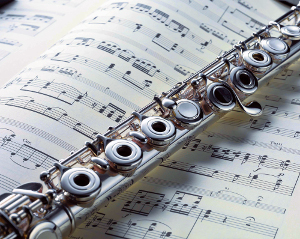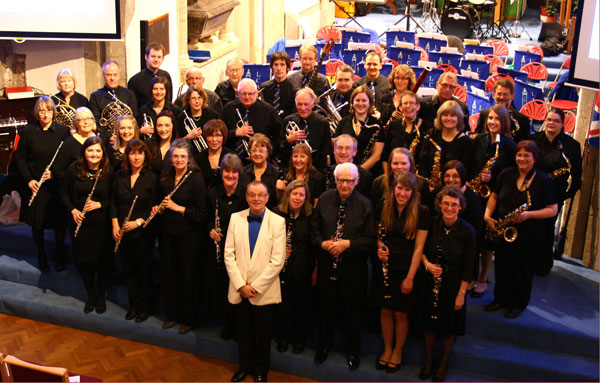News
For details of forthcoming concerts, please also see our concert listingsFocus on the Flute
 What follows is from Wikipedia. This has a reputation for not always being accurate, so band members who disagree with the facts as stated below are welcome to write a comment on the Facebook page!!
What follows is from Wikipedia. This has a reputation for not always being accurate, so band members who disagree with the facts as stated below are welcome to write a comment on the Facebook page!!
Aside from the voice, flutes are the earliest known musical instruments. A number of flutes dating to about 43,000 to 35,000 years ago have been found in the Swabian Alb region of Germany. These flutes demonstrate that a developed musical tradition existed from the earliest period of modern human presence in Europe. Flutes including the famous Bansuri, have been an integral part of Indian classical music since 1500 BC. A major deity of Hinduism, Krishna, has been associated with the flute.
Some early flutes were made out of tibias (shin bones). The flute has also always been an essential part of Indian culture and mythology, and the cross flute believed by several accounts to originate in India as Indian literature from 1500 BC has made vague references to the cross flute.
The Western concert flute, a descendant of the medieval German flute, is a transverse treble flute that is closed at the top. An embouchure hole is positioned near the top, across and into which the player blows. The flute has circular tone holes, larger than the finger holes of its baroque predecessors. The size and placement of tone holes, the key mechanism, and the fingering system used to produce the notes in the flute's range were evolved from 1832 to 1847 by Theobald Boehm, and greatly improved the instrument's dynamic range and intonation over those of its predecessors. With some refinements (and the rare exception of the Kingma system and other custom adapted fingering systems), Western concert flutes typically conform to Boehm's design, known as the Boehm system. Beginner's flutes are normally made of nickel, silver or brass that is silver plated, while professionals use solid silver, gold, and sometimes platinum instruments. There are also modern wooden instruments usually with silver or gold keywork. The wood is usually African Blackwood.

LCB at St Botolph's Church, Shepshed
